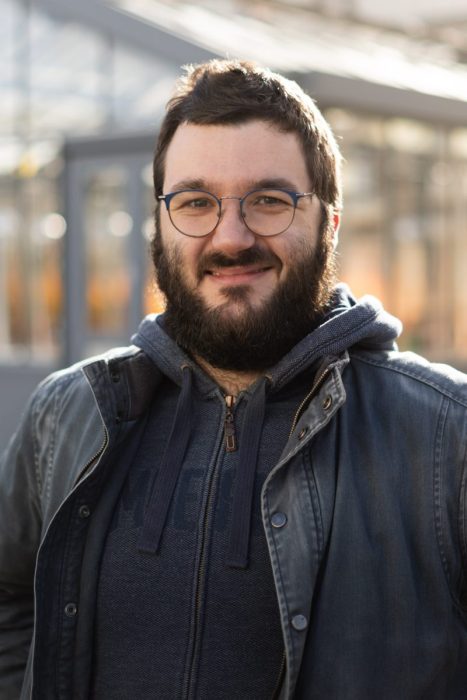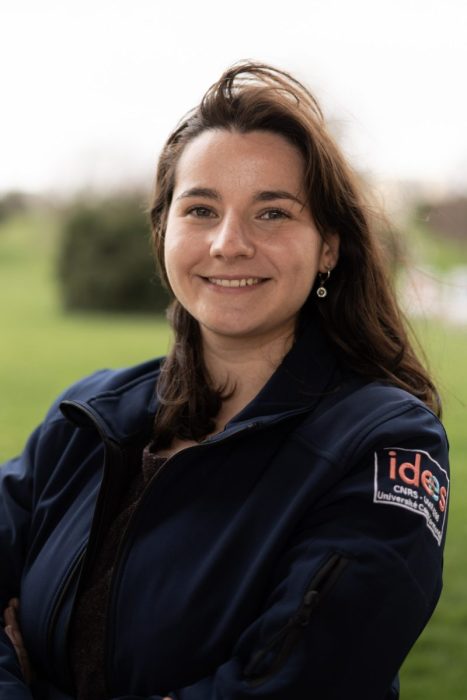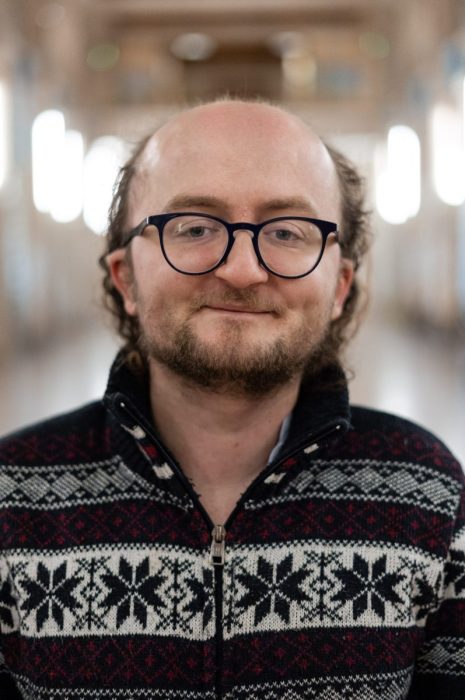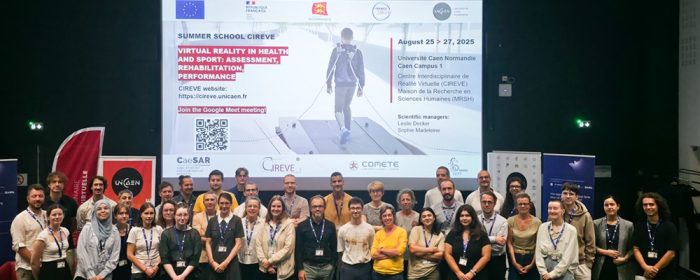Can you summarise 3 years of research in 3 minutes? The finalists of Ma Thèse en 180 secondes (My Thesis in 180 seconds) accept the challenge! Among the 12 contestants, 6 of them represent the University of Caen Normandy. Meet Raphaël, Mathilde and Michel, who will compete for the regional finals of MT180.
A good helping of colza, some clovers and a pinch of silicium
Being an expert in your research subject is one thing; but making non-specialists understand it is another. Such is the concept of My Thesis in 180 seconds: on a stage, each finalist has 3 minutes to present their research in an engaging way.
Raphaël Coquerel, PhD student in the Écophysiologie végétale, agronomie et nutritions N.C.S laboratory, states how important it is to bring research to a general and diverse and audience, “to show that science is not a tedious exercise – science can be fun and its applications useful for society. Thus, explaining our studies is a duty.”

“I study colza because these crops have a lot to offer: oil of course, but also cattle cakes that are made of what is left on a colza seed after removing the oil, which could replace imported soja, or even biofuels. Colza needs fertiliser to grow into a quality crop. I study how we can use clover as a fertiliser for colza. Clovers can fix atmospheric nitrogen and then redistribute it; moreover, we can use silicon to enhance the clovers’ ability to absorb nitrogen. Mixing both colza and clover will reduce the use of nitrogen fertilizer, and thus reduce the environmental impact.”
– Raphaël Coquerel, PhD student and finalist of the My Thesis in 180 seconds contest
Hedges or the “all-rounders of the environment”
Another contestant for the Norman final, Mathilde Guillemois, PhD student in the Identité et différenciation de l’espace, de l’environnement et des sociétés laboratory, wants to raise awareness on the importance of hedges in the bocage, the Norman wooded countryside. The researcher studies “the evolution of agricultural habits since 1830, especially the shift from massive use of pasture soils for cattle to big crops impacting soils and the quality of water streams.” And for Mathilde, hedges have a huge part to play!
“Hedges are all-rounders of the environment. They act as windbreaks, they protect and feed animals, they shield from the water coming from above and reduce stream erosion. When it rains, with the fields going downward, water flows down, becomes stronger and removes soil particles that can end up in a stream. This water carries sediments, maybe pesticides and nitrates, that all end up in the stream too, polluting water and thus polluting the entire ecosystem. I try to follow the waterflows to identify areas at risk and contribute to a better spatial planning that would be more respectful of the environment.”
– Mathilde Guillemois, PhD student and finalist of the My Thesis in 180 seconds contest

Silicium or iron?
Michel du Chalard, PhD student in the Centre de recherche sur les ions, les matériaux et la photonique laboratory, plays the part of the detective in the field of theoretical physics. How can you differentiate silicon from iron(II) with an atomic microscope ? To do so, Michel searches for clues with a “carbon sheet placed on the trajectory of the ion. The ion removes electrons from the carbon sheet. Depending on how many electrons the ion removes, we will know whether it is a silicon or an iron ion.” To obtain these results, Michel had to “develop a whole computer program” and adapt its experiments: “every time an electron is removed from the sheet, the surface of the sheet changes. We need to take this change in charge into account for the next electron, because the more charged the sheet is, the hardest it will be for the electron to go through it.”

“This method can be used to improve research technologies. A more efficient detector will help all the researchers that use it in their own research projects. The program I designed can also be reused.”
– Michel du Chalard, PhD student and finalist of the My Thesis in 180 seconds contest
Scientific mediation is a challenge for every researcher
Raphaël, Mathilde and Michel believe that scientific mediation is crucial. My Thesis in 180 seconds is a great opportunity to show the results of their studies. “The most important part is to make young students want to do physics and sciences,” Michel explains, “most of them will not remember my carbon sheets, but they may think that research in physics is indeed interesting.” Making science understandable is also a way to “give access to research, by bringing knowledge to a larger audience and allowing everyone to be on equal terms regarding knowledge,” Mathilde approves.
The challenge is nonetheless huge for the finalists, who have but three minutes to convince several hundreds of people. Mathilde states that such an experience allows them to “go out of our comfort zone and meet new profiles of PhD students.” While PhD is indeed a lot of work, the geographer insists that “it is not a sprint but a marathon.” Be it to take part in this kind of contest or to go on the thesis journey, what really matters in the end is to “be connected to your research subject, to find meaning and motivation in it,” Raphaël concludes.
You want to know who will win the regional final and thus represent Normandy for the national contest ? You can attend the Norman final of My Thesis in 180 seconds on the campus 1, at the Pierre Daure Amphitheatre, on March 14, at 2 pm. The entrance is free!






